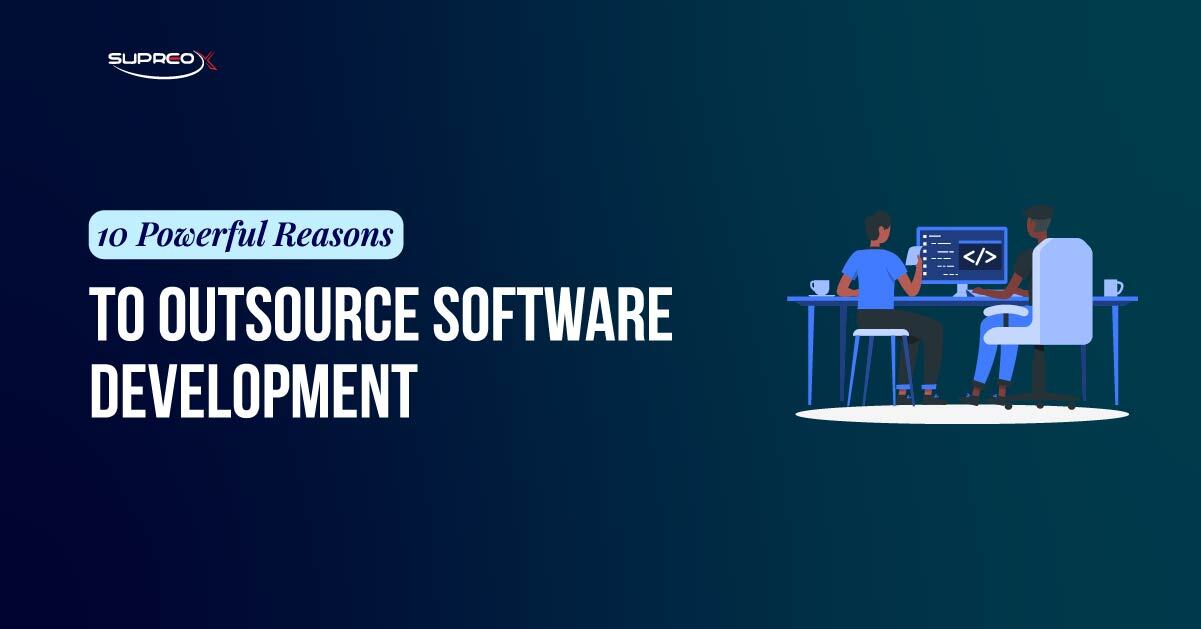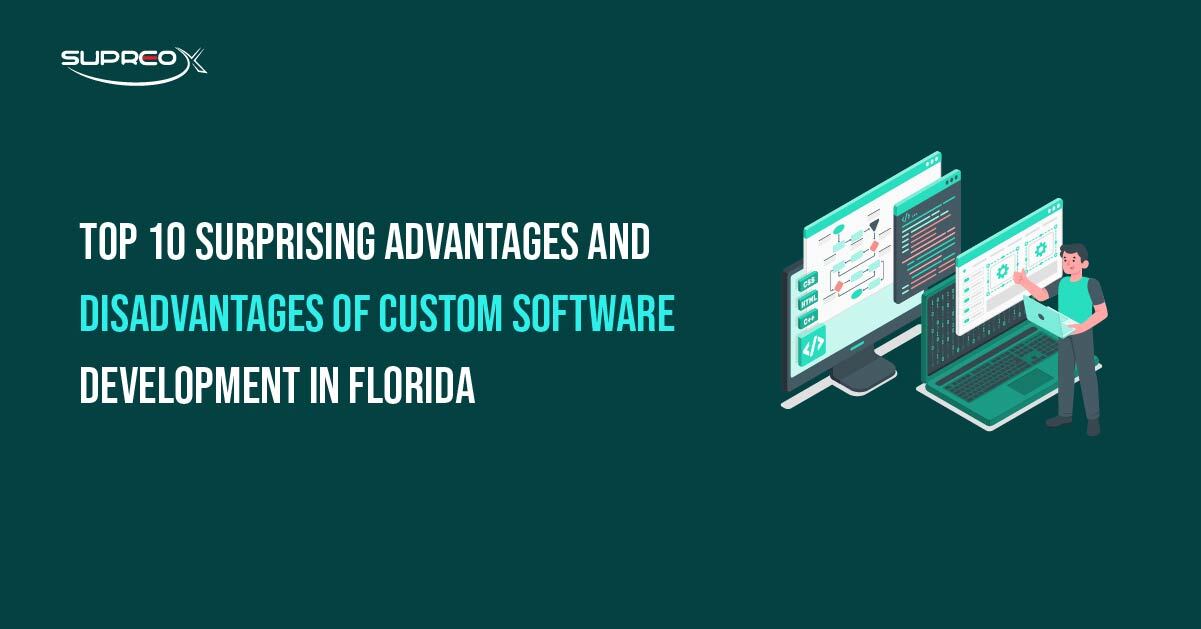In today’s competitive e-commerce landscape, gaining online visibility is more crucial than ever. Search Engine Optimization for e-commerce stores is essential because it helps bring in free, regular visitors and increases sales.
Whether you’re running a Shopify, WooCommerce, Magento, or BigCommerce store, implementing the right e-commerce SEO strategies can significantly impact your business growth. In this article, we will explore key SEO tactics, including identifying the right keywords, optimizing the technical aspects of your website, and promoting your content.
Importance of Keyword Research for ECommerce SEO
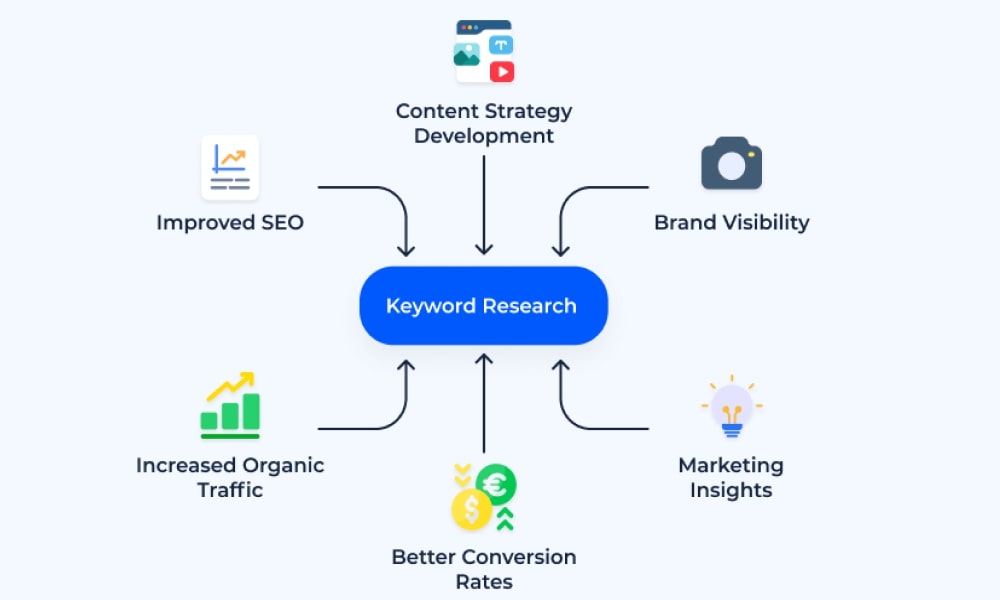
Keyword research is the foundation of any successful e-commerce SEO. It teaches you what your potential customers want, so you can use those words to optimize your product and category pages with high-intent keywords that drive conversions.
Tools to Use for Keyword Research
Here are the tools you can use to identify high-quality keywords:
- Google Keyword Planner
- Ahrefs
- SEMrush
- Ubersuggest
How to Identify High-Intent Keywords?
Focus on both short-tail and long-tail keywords. Long-tail keywords, such as “best SEO plugin for Shopify,” may have lower search volumes but often higher conversion rates. Use Ahrefs to find long-tail transactional keywords with low keyword difficulty and high click-through potential.
On-Page SEO Optimization for Product Pages
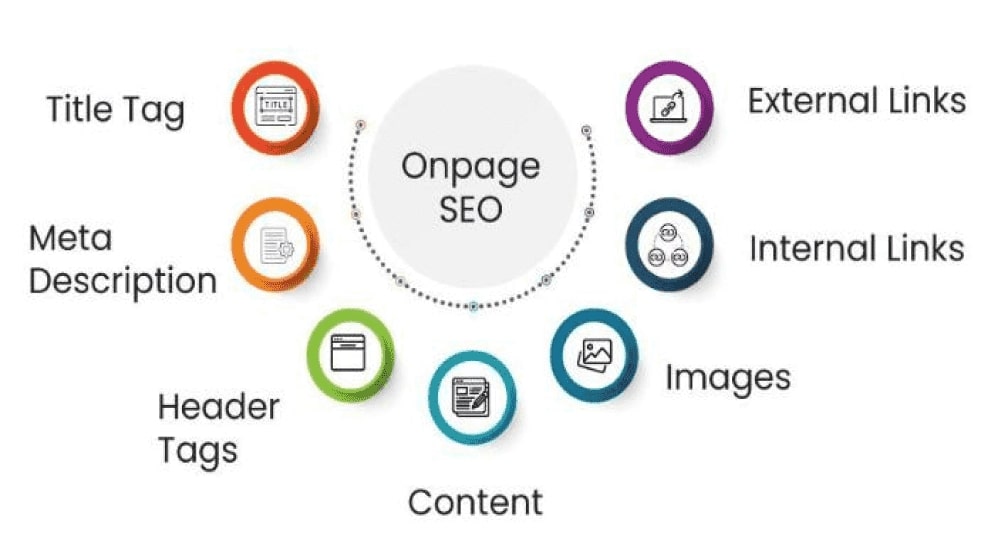
Optimizing Product Titles and Meta Descriptions
Use descriptive, keyword-rich product titles and write compelling meta descriptions to increase click-through rates.
Write Unique and Engaging Product Descriptions
Avoid generic or duplicate content. Instead, craft engaging product descriptions that highlight features, benefits, and use cases with semantic variations.
Tips for Optimizing Product Images
- Use keyword-rich file names (e.g., wireless-headphones-black.jpg)
- Add descriptive alt tags for SEO and accessibility
- Compress images to improve load speed
Internal Linking Strategy
Link to related products and categories to keep users engaged and improve site structure. Use anchor text naturally with relevant keywords. On a product page, link to complementary items using “frequently bought together” sections.
Technical SEO for E-commerce Sites
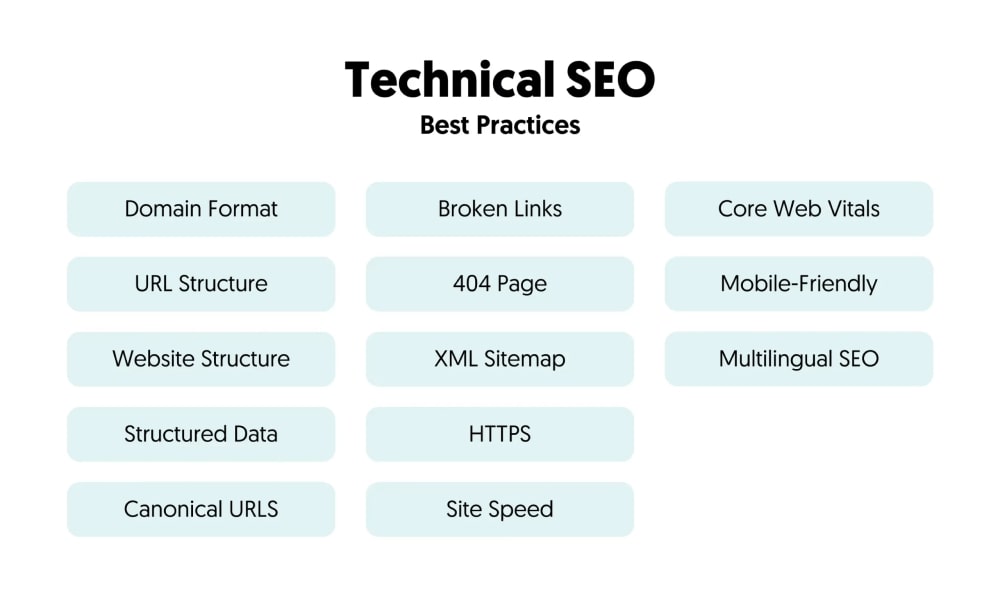
Importance of Site Speed and Performance
A fast site reduces bounce rates and improves its search engine rankings.
How to Speed Up Your ECommerce Store?
- Use a Content Delivery Network (CDN) like Cloudflare
- Minify CSS, JS, and HTML files
- Enable browser caching and gzip compression
- Use lightweight, responsive themes
Read More: White Label SEO Service
Mobile Optimization
- Use a mobile-first design approach
- Ensure fast mobile load times
- Test usability with Google’s Mobile-Friendly Test
Secure Your Site with HTTPS
Security is a ranking factor. Use an SSL certificate to encrypt user data and boost trust. Conduct regular site speed and mobile-friendliness audits to keep up with Google’s Core Web Vitals.
Content Marketing for E-commerce SEO
Creating relevant content helps you rank for informational and commercial-intent keywords, builds topical authority, and increases organic traffic.
Types of High-Converting Content
- Product buying guides
- Comparison posts (e.g., “Nike vs Adidas Running Shoes”)
- Customer FAQs
- User-generated content and reviews
Content Creation Tips
- Use primary and related keywords naturally
- Structure content with H2s, bullet points, and short paragraphs
- Add images, videos, and infographics to boost engagement
Example: Write a blog post on “Top 10 Gifts for Tech Lovers,” linking to your top-selling gadgets.
Off-Page SEO Strategies
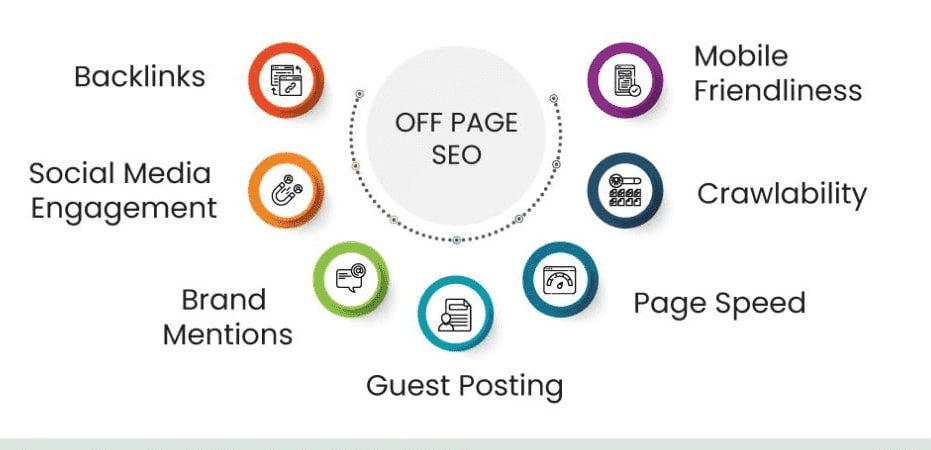
Building High-Quality Backlinks
Backlinks from reputable websites signal trust and authority to search engines.
How to Get Backlinks?
- Publish guest posts on niche-relevant blogs.
- Collaborate with influencers and affiliate marketers.
- Use HARO (Help a Reporter Out) to earn press mentions.
Listing Your Site in Business Directories
Add your site to relevant business directories to increase visibility and boost off-page SEO through valuable backlinks.
Example: Implement a guest posting strategy to build high-quality backlinks.
Benefits of Using Structured Data and Schema Markup
Structured data helps search engines better understand your site’s content and enables rich snippets in search engine results pages (SERPs).
Implement Schema Markup
Add schema markup to your product pages to enhance search results with rich snippets.
Types of Schema to Use
- Product schema
- Review and rating schema
- Breadcrumb schema
- Offer schema
Tools for Generating and Testing Structured Data
Add review schema to your product pages to show star ratings in search results. You can generate and test structured data on the following websites.
- Google’s Structured Data Markup Helper
- Schema.org
- Merkle’s Schema Generator
Regular SEO Audits and Monitoring

Importance of Regular SEO Audits
Regular SEO audits help you identify issues that may impact your rankings and maintain your site’s optimization.
Key Areas to Audit
- Site crawlability and indexation
- Page speed and mobile usability
- Duplicate content
- Broken links and redirects
Best Tools for Conducting SEO Audits
Schedule monthly audits and use a checklist to review on-page, technical, and off-page SEO factors, using the SEO tools below.
- Google Search Console
- Google Analytics
- Ahrefs Site Audit
- Screaming Frog SEO Spider
Real-World SEO Case Studies
Many successful e-commerce businesses improved their visibility by investing in SEO.
Example: A DTC apparel brand increased traffic 200% by creating in-depth guides and earning backlinks through PR outreach.
Lessons Learned and Best Practices
- Prioritize keyword intent over volume
- Don’t overlook technical SEO
- Balance content quality with frequency
Conclusion
Mastering SEO for e-commerce websites requires a holistic approach. Every aspect, from keyword targeting and product page optimization to technical performance and backlink building, enhances search visibility and drives conversions.
Stay updated with Google’s algorithm changes, invest in great content, and track performance regularly to outperform your competition. Contact SupreoX today, and let’s grow your store’s visibility, traffic, and sales.
Frequently Asked Questions (FAQs)
Why is SEO important for ECommerce websites?
SEO boosts your e-commerce store’s visibility on search engines like Google, attracts qualified organic traffic, increases product discoverability, and drives higher conversion rates without relying heavily on paid ads.
How do I find the best keywords for my products?
Use tools like Ahrefs, SEMrush, or Google Keyword Planner to uncover buyer-intent keywords, long-tail search terms, and transactional phrases with low competition and high conversion potential.
What’s the difference between on-page and off-page SEO?
On-page SEO refers to elements you control on your website, such as optimized meta tags, product descriptions, and internal linking. Off-page SEO focuses on external signals, such as backlinks, brand mentions, and domain authority.
How often should I update my SEO strategy?
SEO requires ongoing attention. Perform monthly audits, track keyword rankings, monitor traffic with Google Analytics, and adjust based on algorithm updates or seasonal e-commerce trends.
Can content marketing really help my store rank better?
Absolutely. Publishing SEO optimized blogs, buying guides, and FAQ pages helps build topical authority, answer customer queries, increase dwell time, and target additional long-tail keywords.
Is technical SEO difficult to implement?
Technical SEO can be complex, but it is essential. Using tools like Google Search Console, Ahrefs, or Screaming Frog and partnering with agencies like SupreoX can help you resolve crawl errors, boost site speed, and enhance mobile usability.
What type of backlinks should I focus on?
To boost your domain authority and trustworthiness, prioritize acquiring high-quality contextual backlinks from industry blogs, digital PR, niche directories, product roundups, and influencer mentions.




